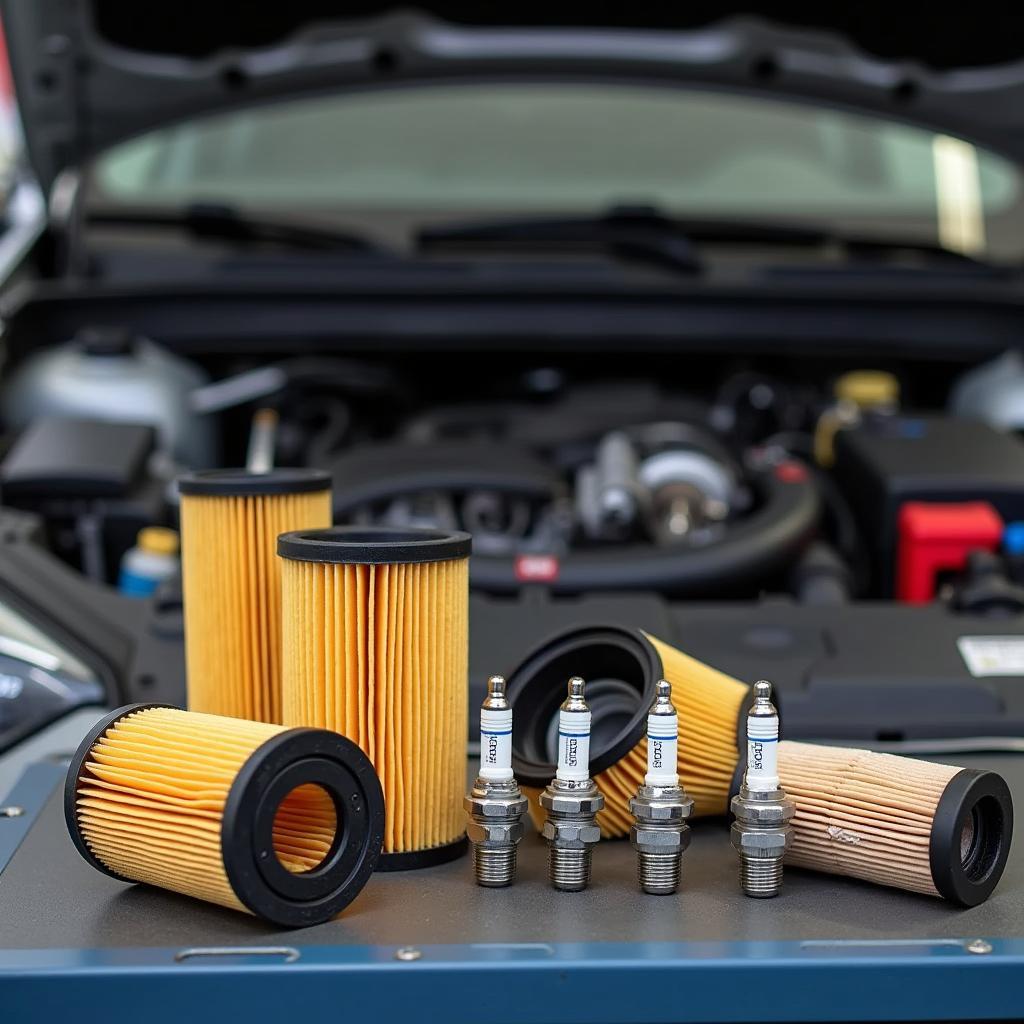Getting your Hyundai serviced is an essential part of car ownership, ensuring it runs smoothly for years to come. But understanding the breakdown of your car servicing invoice after GST can sometimes be confusing. This article aims to shed light on the typical charges you might see on a Hyundai car service invoice in a post-GST world, empowering you to make informed decisions about your vehicle maintenance.
Decoding the Hyundai Car Servicing Invoice
While the specific items and costs on your invoice will vary depending on your Hyundai model, the service center, and the type of service performed, most invoices follow a similar structure. Here’s a breakdown of common charges:
1. Parts and Consumables
This section lists the physical components used during your Hyundai’s service. Expect to see items like:
- Engine Oil: The lifeblood of your engine, ensuring smooth operation and preventing wear and tear.
- Oil Filter: Traps contaminants in the oil, keeping your engine clean.
- Air Filter: Prevents dust and debris from entering the engine, ensuring optimal air intake for combustion.
- Cabin Air Filter: Cleans the air entering your car’s cabin, improving air quality.
- Spark Plugs: Ignite the air-fuel mixture in the engine cylinders.
- Brake Pads/Rotors: Essential for safe and effective braking.
- Wiper Blades: Provide clear visibility during rain or snow.
- Belts and Hoses: Drive various engine components and require periodic inspection and replacement.
2. Labor Charges
This covers the expertise and time spent by qualified technicians working on your Hyundai. Labor charges often constitute a significant portion of the invoice.
- Scheduled Maintenance: This covers routine procedures at specific mileage intervals outlined in your Hyundai’s service schedule, such as oil changes, filter replacements, and general inspections.
- Repairs: These are charges for diagnosing and fixing any identified issues with your car.
- Diagnostic Charges: If your Hyundai requires troubleshooting to identify a problem, you’ll likely see a diagnostic charge. This covers the technician’s time and specialized equipment used to pinpoint the issue.
3. GST (Goods and Services Tax)
GST is a consumption tax levied on most goods and services in many countries, including Australia. It is applied to both parts and labor charges on your Hyundai car servicing invoice.
- GST on Parts: The GST rate on car parts can vary depending on the specific item.
- GST on Labor: The GST rate on labor charges for car servicing will depend on your location and the service center’s GST registration.
Understanding how GST is applied to your invoice can help you estimate the total cost accurately.
Factors Influencing Hyundai Car Servicing Costs After GST
Several factors can impact the final amount you pay on your Hyundai Car Servicing Invoice After Gst. These include:
- Hyundai Model: Different Hyundai models have varying service requirements and parts costs, influencing the overall expense.
- Service Center Type: Dealerships typically have higher labor rates than independent garages. However, they often offer specialized expertise for your Hyundai model.
- Service Package: Opting for a scheduled maintenance package or bundled services can often save you money compared to individual services.
- Your Location: Labor rates and GST rates can vary depending on your geographical location.
Tips to Manage Your Hyundai Car Servicing Costs
Here are some tips to help you manage your Hyundai car servicing expenses:
- Follow the Service Schedule: Adhering to your Hyundai’s recommended service schedule can help prevent major issues and potentially save on costly repairs down the line.
- Shop Around for Quotes: Don’t hesitate to contact multiple service centers (dealerships and independent garages) to compare prices for the services you require.
- Inquire About Discounts: Check for any available discounts, such as those for seniors, students, or military personnel. Some service centers also offer seasonal promotions.
- Consider DIY for Basic Tasks: If you’re mechanically inclined, you can save on labor costs by performing simple maintenance tasks yourself, like changing wiper blades or checking fluids. However, leave more complex procedures to qualified professionals.
Conclusion
Understanding your Hyundai car servicing invoice after GST is crucial for managing your car maintenance budget effectively. By familiarizing yourself with the common charges, factors influencing costs, and tips to save, you can approach your next Hyundai service appointment with confidence. Remember, regular servicing is an investment in the longevity and performance of your vehicle.


